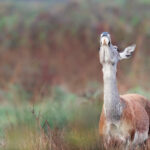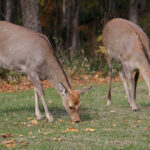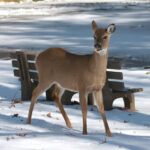A close relative of wolves, coyotes are smaller and can even be mistaken for dogs.
They are wild animals, but their resemblance to the canine pals we keep at home can’t help but make us wonder: can coyotes be domesticated and taken in as a pet?
Table of Contents
- Can Adult Coyotes Be Domesticated?
- Can A Coyote Pup Be Domesticated?
- How Do You Tame A Coyote?
- Can Coyotes Be House Pets?
- Can You Legally Own A Coyote?
- Can Coyotes Mate With Domestic Dogs?
- Could A Population Of Coyotes Be Domesticated?
- Conclusion
- Related Posts
Can Adult Coyotes Be Domesticated?
Coyotes may look like they could be one of our cuddly friends, but it is not so easy to make them into pets.
They are different from dogs in several ways which makes them problematic companions.
An adult coyote cannot be domesticated. When a coyote is born in the wild and has lived its entire life as a coyote normally would – hunting and scavenging alone or in a pack – it would make it difficult for him to adapt to a human way of life. Its natural instincts are too ingrained at this point to feel fully comfortable with humans and rely on them solely for food.
Coyote adults are not on the market to become anyone’s pets. Coyote pups, on the other hand, are occasionally sold as pets.
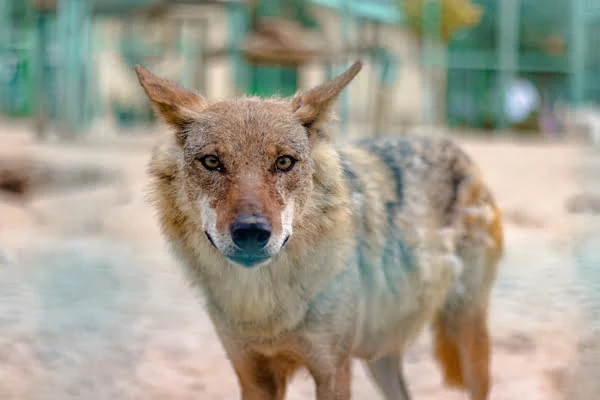
Can A Coyote Pup Be Domesticated?
It is possible to raise a coyote puppy as a domestic animal, but it is not easy. There are breeders of tame coyotes that sell puppies as exotic pets. You could expect the price of a pup to be around $800 – cheaper than the average German Shepherd or Border Collie, but definitely harder to train.
A coyote puppy requires a lot of training to become accustomed to domestic life, as it goes against their natural instincts.
As it grows up, a coyote will tend to act as the alpha of the group if there are no stronger members to challenge it.
How Do You Tame A Coyote?
If someone is raising a coyote and expects it to obey commands, as a dog would, then they have to display dominance and establish themselves as the alpha of the pack. This concept is similar to the training used for any dominant dog breed, but the instinct to be competitive and hierarchical is much stronger in coyotes.
Not all coyotes are the same, however – there have been people who have adopted coyote pups and raised them to be loyal and calm companions.
Some will even walk on a leash and interact playfully with dogs. But these stories are rare.
And even if the coyote grows up to be a tame pet, it will still have many extra needs compared to a dog.
Related: Will Coyotes Attack Humans In A Tent?
Can Coyotes Be House Pets?
Coyotes need lots of space to roam – they aren’t suited for a house. They have bodies built to leap higher and run faster than any dog. Even if you have a large piece of land in the country, they are bound to jump over fences to explore their natural habitat outdoors.
You can get away with keeping a Pomeranian in an apartment, but that wouldn’t work for a coyote.
Coyotes are naturally more alert and aggressive than the average dog, so they are certainly not suited for a life in the city among crowds.
If raised from a pup by one person, a coyote will likely be protective of that person and aggressive towards anyone else who comes near.
Coyotes are not dogs: they are not receptive to human touch. In general, pet coyotes do not like being touched and cuddled as much as dogs, and they will not respond as well to voice commands.
It has taken thousands of years of breeding and evolution for a group of wolves to become what we now know as dogs.
Dogs are biologically adapted to human behavior – they can communicate with us in ways a coyote never will be able to.
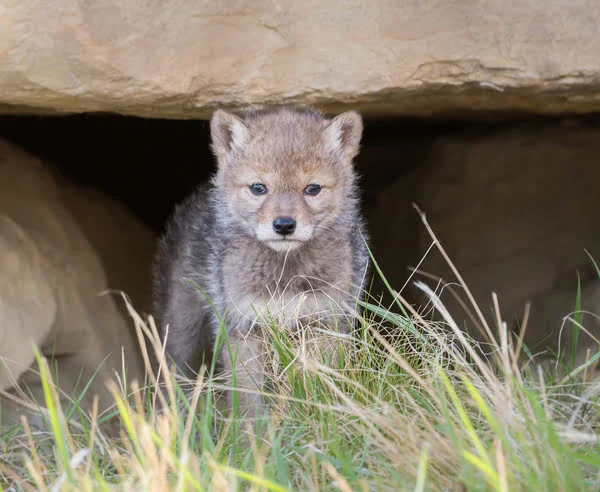
Can You Legally Own A Coyote?
Even if you were to undertake the task of domestication, you might not legally be allowed to keep a coyote as a pet.
It is illegal to keep coyotes as pets in many places in North America. Depending on the state or province, you may need a permit to keep wildlife such as coyotes as pets, or you may simply be not allowed to do so. There are reasons for this:
(1) Wildlife does best in its natural habitat – the wild.
(2) Coyotes can be dangerous in a human environment.
A tamed coyote may be aggressive toward humans that are not its owner. Even dogs occasionally bite people – the risk remains with coyotes, but they have large teeth built to tear flesh instead of kibble.
Coyotes also don’t get along very well with pets. They often view dogs as competition or threats, so will act aggressively toward them.
And they often view cats and other small pets as…well, food.
Can Coyotes Mate With Domestic Dogs?
Urban coyotes are adapting more to humans, and they sometimes mate with dogs.
“Coydogs,” the cross between a coyote and a domestic dog, are rare but they do exist. These coyote-dog puppies would likely be easier to domesticate than pure coyote pups since they already have some domestic genes.
As we continue to build and develop into their habitat, coyotes, and humans are getting closer and closer.
Coyotes are increasingly seen around cities scavenging for scraps or even being fed by people. In an environment like this, the less aggressive coyotes will naturally thrive.
However, these coyotes are not being domesticated, they are just becoming habituated to humans. They are more tolerant of human presence, but still, hold on to their predatory and wild nature.
Could A Population Of Coyotes Be Domesticated?
It is not out of the question that a population of coyotes living in cities could adapt to urban environments and develop a deeper relationship with humans.
After all, this is how dogs emerged from wolves thousands of years ago.
Domestication of a species takes a very long time, however. And the general dislike for coyotes on our part does not bode well for their domestication: the closer they get to humans, the more likely we are to exterminate them.
Other wild canines – like foxes and dingoes – are sometimes kept as pets as well.
After years of breeding tame foxes, researchers produced foxes that act a lot like friendly dogs. This emphasizes the role time and genetics play in domestication.
Dingoes are dogs that went through the reverse of domestication: once tame dogs, they are now a separate species living in the wild.
They can be kept as pets, but like coyotes, do not make the best companions, as their wild instinct is still there.
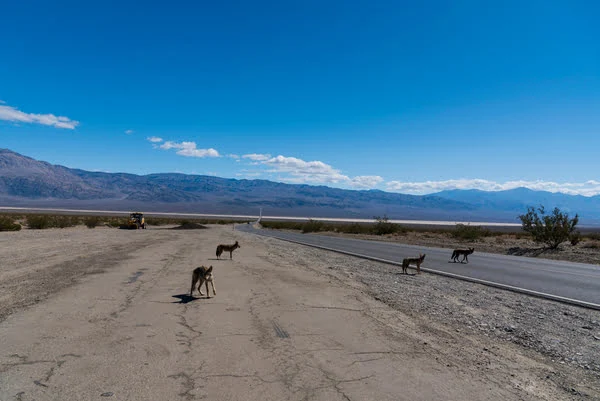
Conclusion
Coyotes are wild animals that are adapted to live in nature, not in human households. It’s very difficult, if not impossible, to domesticate them.
A coyote pup can be raised to be tame and friendly towards humans, but it will not act like a typical pet and will always have natural instincts meant for the wild.
